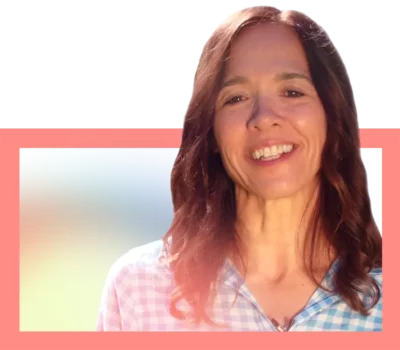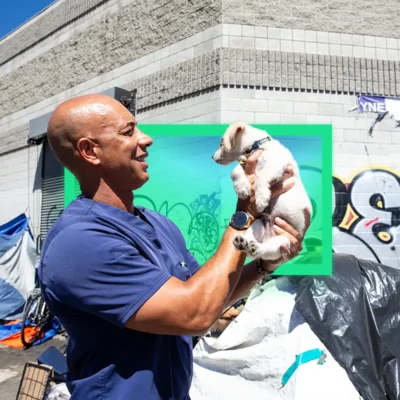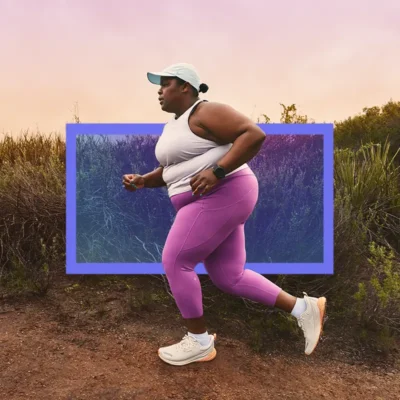We’re doing this thing together
Rural California is all Kristin Windbigler knows as a child — its wild, green pastoral landscape, where living off the land and self-sufficiency is a choice to live abundantly. One evening, gathered around the television with her mom and dad, Kristin watches a news report that suggests families like hers, living below the poverty line, are in critical need of help. What the TV journalist misses is that it’s possible to live abundantly without a big paycheck, without the need for anything other than what the land and community already provide. The news report sends Kristin on a path to tell deeper, multi-dimensional stories. She ends up in San Francisco and discovers that city-living has its own charm, before coming home to country life where she is today. The stories Kristin shares are American narratives that add up to a universal truth: when we people work together to solve urgent problems, our differences fall away.
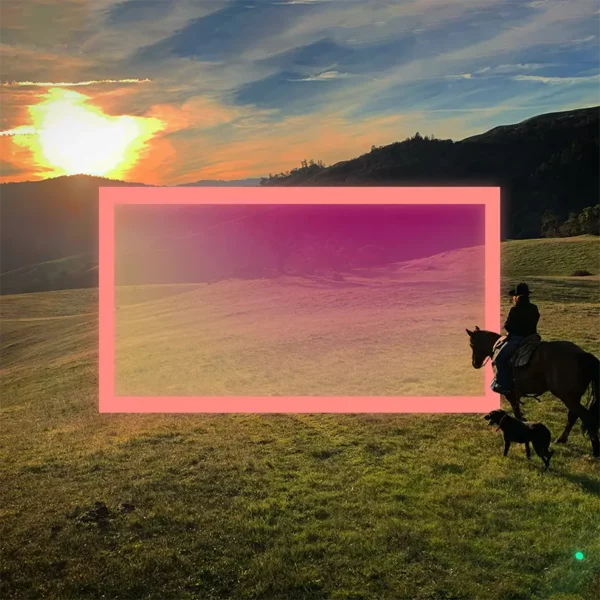
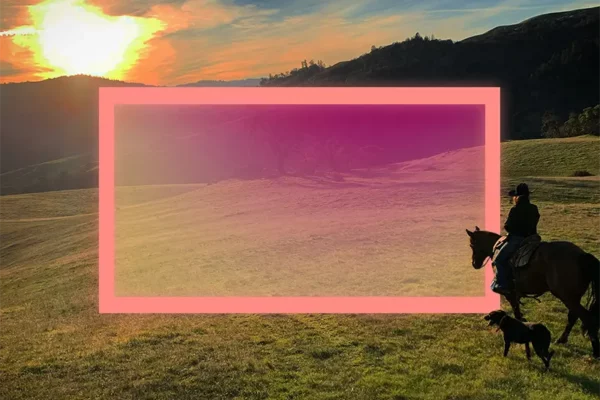
Table of Contents:
Transcript:
We’re doing this thing together
KRISTIN WINDBIGLER: There’s a magical quality to Humboldt County you don’t find anywhere else. The land we live on is expansive and pastoral. There are two creeks on either side of our home, and ancient orchards surround us. Everything has a distinct smell — the river, the Redwoods, the fir trees. And there’s food everywhere. When the pear trees by our house ripen, it’s a race to pluck them before the bears get a hold of their juicy goodness.
ROHAN GUNATILLAKE: Kristin Windbigler is the director of the Western Folklife Center, the folks who put on the annual Cowboy Poetry Gathering. (If you remember a Meditative Story from the cowboy poet Waddie Mitchell, he’s one of the stars of that festival!) Kristin grew up in the wilds of rural Humboldt County, California, a green and growing place where independent living and mutual support go hand in hand. As she grows up, she realizes just how special this place is, a place where people come together when life throws the unexpected at us, and a place where our differences fall away because that’s what life expects of us, and she makes a vow to tell its stories.
In this series, we combine immersive first-person stories, breathtaking music, and mindfulness prompts so that we may see our lives reflected back to us in other people’s stories. And that can lead to improvements in our own inner lives.
From WaitWhat, this is Meditative Story. I’m Rohan, and I’ll be your guide.
The body relaxed. The body breathing. Your senses open. Your mind open. Meeting the world.
WINDBIGLER: I’m eight years old and all spruced up. My western shirt is decorated with tiny, dancing ballerina mice, and it has pink pearl snaps running down the front. It’s tucked into my pink jeans. The outfit’s designed by yours truly and made by my Mom, and I look pretty cool — or at least I think I do. I’m wearing a black cowboy hat with a giant feather sticking in the brim. It’s the perfect finishing touch.
Since I’m young, I’ll be riding a steer. I’m the only girl in this competition. The other girls are barrel-racing with their horses.
My dad helps lower me down, and I slide onto the steer. Then it’s just the animal and me, together, in this small enclosed space. These are the same wooden and metal chutes they use to run the bulls for the men, but the bulls are much bigger and tougher. We wait here in the dark. I feel the steer breathing and wiggling. It doesn’t really want to be in here either. I look for light through the cracks in the gate. I try to listen for what’s happening outside — who’s up next? How are the other kids performing? — but I can’t make out much over the crowds.
Then someone asks: “Ready?” You’re supposed to nod your head to tell them you’re set. I’m terrified, but I do nod my head. We all have to do things in life that we’re scared of.
You never know what will happen when the gate opens. Sometimes the steer bursts out as soon as he sees the daylight. Sometimes they freeze and do nothing. Not so different from humans I guess.
The gate opens and my steer charges out into the arena. The goal’s to hold on for 8 seconds — and that’s a really long time.
For great riders, the bucking stock events are really beautiful — it’s like a dance between the rider and the animal. It’s like ballet. And part of rodeo culture is caring about the animals. So you’re hoping the animal has its best day too and really bucks well.
My steer has a great day, and I hang on tight. The kids from the neighboring ranches cheer and scream. It’s thrilling. And terrifying. And it ends … well, it ends with a mouthful of dirt. I get bucked off, like most of the kids. But I stand up and walk off while the whole town cheers. I feel proud. That saying — “When you fall off, you just have to get back up” — it’s a literal lesson for us ranch kids. It’s a “walk-it-off” culture.
Growing up in our ranching community in Humboldt County, rodeoing is just something kids do. I’m not a particularly good rider, but I love how I feel at the rodeo. Like I’m part of something. Like I belong.
Once the steer and I have our reckoning, I walk back behind the grounds where all the families are camped. Rodeos are multi-generational events. There are the kids, then the parents, and then the old-timers. The old-timers have the best stories. When we’re at home, my dad and I visit them on their ranches. While the adults talk, I’m supposed to be quiet and practice tying knots because that’s an important skill in country life. But I’m not very good at tying knots, because I’m so fascinated with the stories they tell.
Our community is filled with cowboys, loggers, fishermen, and farmers. They have their own lingo. I’m captivated by the way they talk and swear. Everyone here feels like a character ready to jump out of a storybook.
Like Louie. He’s an Italian bachelor cowboy who rides around town in his little green Datsun pickup truck. His Saint Bernard goes everywhere with him. It stands like a horse in the stock racks in the back wagging his tail, fur swept back by the wind.
Or there’s another neighbor. He has a typical homestead, but he doesn’t live close enough to the telephone lines to have service to his house. So he builds this tiny outhouse-like building next to a telephone pole near the road, and now he has a phone booth. Whenever he needs to make a call, he walks across the pasture to his phone booth.
We use all kinds of colorful language. We celebrate creativity. Go out and do whatever — even if “whatever” means putting your “phone booth” in a pasture next to the road. We’ll cheer you on.
It’s Sunday night. My Mom and Dad and I are in the living room, my sister too. It’s cozy in here with a big woodstove and walls of redwood paneling. A print hangs on the wall of horses at a gate.
Up until this past year, we don’t have a TV. Dad buys it because he loves watching football. I can’t tell you the number of times we yell to him from the window, as he spins the antenna mounted in an apple tree outside, just trying to get a signal.
We gather around each week to watch the news shows.
Tonight they’re covering a story that touches on poverty in America. They’re talking about what it means to fall “below the poverty line.”
I’ve never heard these words before, but I’m ready to feel sad for these folks. Then they share exactly how much money you have to earn annually to be considered “below the poverty line.” I look over at my parents, and I can tell from the expressions on their faces, that this is news to them. It turns out: We live below the poverty line. Us.
It doesn’t match up. We’re happy. My life is so rich here, so how can we be poor?
I look to my parents for a sign that they agree, a sign that the broadcast got it wrong. They just giggle nervously at the broadcast. I try to laugh it off too, but I can’t just move on. I don’t have the words for it, but I know something is wrong. What the TV journalist misses is that it’s possible to live abundantly without a big paycheck. My parents choose to live a different way here. We grow our own food, we make our own clothes. We don’t need anything we don’t already have.
After that broadcast, I start to see the world around me with new eyes. And I start to notice what’s special about this place, what other people maybe don’t understand.
And I decide: I’m going to be a journalist some day. I want to write and tell stories about us. Where we come from. Because we don’t see ourselves on TV or in the movies or in magazines. The country folk on TV are all stereotypes like the Beverly Hillbillies. But there’s so much more to us that people don’t bother to see. We’re not some 2-dimensional characters. Life isn’t like those shows.
GUNATILLAKE: There is a lot of wonderful energy here in Kristin: a new eye for the magic of her country life. The America reflected back to us through the media is often more nuanced than we’re led to believe. Take a few moments to settle into young Kristin’s realization that her family’s choice to live off the land is a life full of abundance. With a fresh new lens, I invite you to reconsider the choices that others have made which initially you might not have fully understood.
WINDBIGLER: We move to what we call our “home place” on my 7th birthday. We live in this rural part of Northern California, about an hour from the coast, in a region that’s a mix of ranch land and timber land. We’re 45 minutes from the nearest town, which has the supermarket and a hospital.
Dad’s family lived in this region for generations. I think that’s why I never feel afraid here. I love it from the first day we move.
There’s a magical quality to Humboldt County you don’t find anywhere else. The land we live on is expansive and pastoral. There are two creeks on either side of our home, and ancient orchards surround us. Everything has a distinct smell — the river, the Redwoods, the fir trees. And there’s food everywhere; we’re constantly foraging what’s in season: fruit and berries in late summer, mushrooms in the fall and winter, nuts … everything. When the pear trees by our house ripen, it’s a race to pluck them before the bears get a hold of their juicy goodness.
In the 1970s, a lot of people become “back-to-the-landers.” It’s a movement of people dropping out of society and coming back to the countryside after the Vietnam War. But that’s not our story. My folks grow up in rural communities themselves, and they’re intentional about how they want to raise us. They choose not to move to the suburbs and take corporate jobs — because they want us to grow up close to the land, and with the same values of self-sufficiency and community they were raised on. But we aren’t cut off. We get the newspaper. We read magazines. My parents vote and stress the importance of paying attention to what’s going on in the rest of the country. When the school tells me that girls can’t play football, my Mom gives them an education on Title IX laws, and I’m allowed to play. We participate.
And we do it all out here. We make our own clothes. We grow our own food. We maintain our own water system. There’s a lot of services people get accustomed to when they live in town. We don’t have them out here. And I feel … lucky. I can hardly believe I get to live this charmed life.
And I’m also curious. Sometimes, I lay in the field for hours watching planes fly overhead. I wonder about the people in those planes. Who are they? Where are they going? Do they know I’m down here in these hills?
I want to be in their world, but this world too. I know my folks chose this way of living for us, but I still want to know how others live. I’m curious. I want to play a part in the rest of the world. And I know that probably means leaving here someday.
It’s early in the morning, late in the Spring. I’m 10 years old. Outside my window there’s a sound I can’t recognize. I rub my sleepy eyes and adjust to the bright sunshine as I look outside. I rub my eyes again. Out of nowhere, a flock of 50 peacocks have landed in the giant black walnut tree in our front yard. 50 peacocks!! They’re glimmering in the sun, and they’re making that sound, that [squawking sound].
It seems the peacocks somehow escaped from the neighboring ranch in the middle of the night. And now they strut around the yard with their iridescent blue necks and bright green tail feathers. Hundreds of eyespots look straight at us. The whole scene is magical.
But it also means there’s work to be done. How do you move a flock of peacocks? We call our neighbors, and the old man who lives there comes over to bring the birds back to homebase. We get busy working together. That’s just how we all are here. We sort of live by a barter system: You help me this time, and I’ll help you next time. This time, it’s peacocks. Next time, it’s getting the road cleared. We all drop what we’re doing to help someone who needs it. Sometimes it takes up a good portion of the day. But it doesn’t matter.
I often joke that if your house is on fire, even your enemies will show up with buckets of water. We may have different opinions, we may see the world in completely opposite ways. But we have to make it work somehow. In a little community, you don’t have the same services that bigger cities have. You can’t just call animal control. And so you have to look out for each other, and when there is trouble, you have to come together. You’re all each other have.
And so when the peacocks show up, you find yourself all doing this thing together — working hard, laughing, figuring out how to solve a problem. You’re together in the moment and living life — like, really living it. We’re doing this thing together, and it matters.
GUNATILLAKE: This is just the most beautiful image. Fifty peacocks running amok, and Kristin and her community working together to corral them. Comic, a little, but full of care and connection. What communities in your life could catch a flock of proverbial peacocks?
WINDBIGLER: I place a styrofoam cup of stale coffee down on my desk next to a hefty pile of papers. Pink ethernet cable coils out of my computer and across the floor of this warehouse we call an office. It’s my first job out of college, and I work for Wired Magazine. We tout ourselves as “the Rolling Stone of technology.” It’s the 1990s, the early years of the dot-com boom, and I’m here in San Francisco on the ground floor.
There’s an electricity you can feel as we work together to build some of the world’s first websites. I feel alive here.
I notice a care package has been dropped off at my desk. The beautiful cursive writing on the brown box is all I need to see to know a large chunk of my heart is waiting for me inside. It’s not just that I love these care packages from my parents; I’m also desperate for traces of home.
I love my job, but I’m having a hard time adjusting to city life. I cry in the car some mornings when I sit in bumper-to-bumper traffic on the Bay Bridge. I feel so closed-in here. I miss the open space.
I unwrap the package to find books and jam and homemade bear jerky made by a neighbor. Yes, that’s like beef jerky — but it’s made from bear. I break open the bag immediately. I’m walking through the office chewing the bear jerky when a coworker calls out, “Hey Windbigler. What’re you chewing on?”
As the words “bear jerky” leave my mouth, I realize how strange I must appear to a city girl like her as I’m gnawing away on my snack. She doesn’t even have to say a word: I’m the cowgirl. The country bumpkin. The hick. I’m not sure which labels I’ve been given by coworkers and which ones I’ve laid upon myself.
I keep meeting new people who challenge me. Like, they’re all so excited to be living in Northern California for the first time. I want to tell them: “San Francisco isn’t Northern California. Look on a map. We’re in the middle of the state. Northern California is a few hours away.
Slowly I start to realize: There’s so much I don’t know yet about other people and how they see the world. For years, I’ve wrestled with the caricatures people paint of rural communities. I’m starting to realize I have my own stereotypes about city people. Growing up, the people in my community feel sorry for the city folks, who have to live on top of one another, surrounded by pavement, with no open space at all. We can’t imagine anyone would want to live that way. We pity them.
But over those first months in San Francisco, I start to encounter an abundance in this place. The beauty of the bridges. The fog rolling out each morning. The sunny days when you can walk along the water. The experience of so much culture in one place.
My original beliefs start to melt away. Gratitude seeps in. I feel lucky as I leave the office after a long day. Maybe we’re crammed into small spaces but how lucky am I to be surrounded by these fascinating people doing such important work?
I’m the cowgirl, but I’m definitely not the only character in this warehouse filled with city folk, building these new things called “Websites.” The Wired office is filled with a combination of journalists, artists, geeks, and hipsters. We use all kinds of colorful language. We celebrate creativity. Go out and do whatever — even if “whatever” means eating bear jerky at your desk. We’ll cheer you on.
We’re doing this thing together, and it matters.
A sea of cowboy hats is all that stretches out before you. The streets are packed with thousands of people. It’s wintertime. People are bundled up but still dressed to the nines. You can spot the vintage 1970s Western puffer jackets with the classic piping and the Woolrich plaid coats along with every kind of cowboy hat you can imagine.
It’s the National Cowboy Poetry Gathering in Elko, Nevada. The first time I take part in the Gathering, I’m 30 and swell with pride and wonder. I recognize these people. This is my own culture — elevated. Today, I see this sense of wonder in new attendees every year. The human desire to belong, and to feel included — it’s so strong.
The people here come from all different walks of life. Some are stewards of the land — ranchers and farmers with a deep connection to the earth. Others are a couple generations removed from agricultural life but grow up hearing stories and still feel the pull of the West. Others come from the suburbs and cities to experience something new. One woman flies in from Hong Kong every year.
People gather to be together, to eat and drink, to admire the gear, to hear stories and music that celebrate the West. It’s like I’m back at the rodeo, a multigenerational event that celebrates culture and connection to the land.
I stand in the back of the theater as Agee takes the stage. He sits on a wooden barstool with a microphone in hand — behind him, a mural of mountains painted on the wall. Agee’s a fourth-generation Nevada rancher, but he doesn’t look like the stereotypical cowboy. He has a big beard and a glint in his eye. This man radiates goodness.
Agee’s telling us how he is working to save his family ranch. He shows us pictures from the early ’70s when the land was overgrazed. The grass in the photos is depleted and bare. He didn’t know that it could look any different. But he starts listening to other people — with outsiders — and they start listening to him. African scientists and Washington legislators and Nevada ranchers. You wouldn’t expect these folks to ever meet each other, much less solve a problem, but they did. They all worked together to try something new, and the results were astonishing. The land came back. Life took on new forms. And everything — all the people and all the animals — benefited from the land’s revival.
Agee ends with a quote from Chief Seattle: “All things are connected like the blood which unites one family.”
I walk backstage to the control room and the Los Angeles–based camera crew are in tears. They’ve never heard a story like this on the news. “More people need to hear this story,” they tell me.
And I think what moves them is the same thing I felt as a kid, helping to corral the peacocks. In that small, rural community, what happens to one person affects everyone. And this is true in a wider, deeper sense too. We’re all connected. And when we work together toward a common goal, our differences fall away. And we get this soaring feeling of being really truly alive. We’re doing this thing together, and it matters.
Rohan’s closing meditation
GUNATILLAKE: Thank you Kristin.
If you’d like to dive further into the annual Cowboy Poetry Gathering Kristin mentioned, you might like to check out Waddie Mitchell’s Meditative Story, “A cowboy’s rules for living.” We’ve left a link to his episode in today’s show notes.
There is so much to love in Kristin’s story.
But the thing that really strikes me is this thing about labels. How the way others saw Kristin’s home county and the lives of rural people wasn’t her own experience. And how she needed to relax her own stereotypes about city folk before she could really see that which made the city special.
So let’s play with this idea of stereotypes and labels for our short meditation together. And just start by doing what you need to do to switch into a different mode.
Settling in, and settling down. Leaving everything that’s happened today just to one side for now. And taking a break from any thoughts of what you’re doing later on.
Feeling into your body however it is right now, still or moving. Just allowing the body to be relaxed, quiet, and steady.
As much as you can, feeling steady. Letting whatever is happening in body and mind just happen.
When you think of Kristin’s story of being a country person and being a city person, what label, what identity do you side with? Take a moment to reflect on what label best suits you.
Kristin’s rural identity is really important to her. But what other labels are important to you? Again, take your time. What labels matter to you? Shape your view of yourself, and how you are in the world.
Reflecting on your labels, can you feel what they feel like? Again, no right answer, just being interested in the felt sensations of our labels. Are there any associated sensations?
Ok. Now for the final act.
Labels do matter. They help us navigate the world. They bring real community and beauty. But they have their weight, their gravity, their baggage.
So let’s see what happens when we let them go.
With eyes open or eyes closed, let’s just feel what is here without labels. Allowing the awareness to be soft. If the mind moves to name what is happening, notice the energy of that, and let it go.
Because just for now, we’re most interested in the space with no labels. Getting a sense, a taste of what it’s like to know experience naked, unlabelled, unbranded.
Aware. Wide open to experience, whatever is here. Without labels. Just this.
There’s a line in one of my favorite poems. It was read at my wedding.
“Out beyond ideas of wrongdoing and rightdoing, there is a field. I’ll meet you there.”
This is that field. A radical center.
Thank you Kristin, for your story and your work.
And as ever, thank you.
We’re doing this thing together, and it matters.

